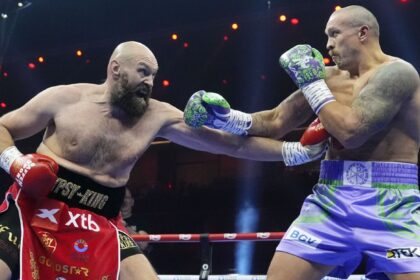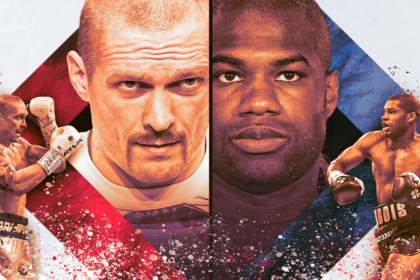Two significant stories highlight the appeal of Ricky Hatton, who passed away at the age of 46 at his home in Greater Manchester on September 14th. The first dates back to 2001, before Hatton was crowned world champion. Back then, he adopted an 11-year-old boy from Oldham as his mascot. Moved by the story of James Bowes, who was dealing with hydrocephalus, Hatton allowed James to carry his belts into the ring before his fights. James would continue to be Hatton’s mascot on some of his most important nights.
The second story involves Hatton wearing a fat suit before his fight against Paulie Malignaggi in 2008. His self-deprecating humor contrasted with the boasting and provocations typical of pre-fight events. Hatton walked to the ring in a fat suit and a robe with the word “Fatman” on the hood, joking about his weight gain between fights. Both stories explain why Hatton transcended the sport, being popular on both sides of the Atlantic, especially in his native Manchester. Although Hatton (45-3, 32 KOs) won world titles at super lightweight and welterweight, perhaps his greatest achievement was his popularity and connection with his fans.He used to show up at the gym in Hyde [in England], he had scars and bandages on his head and I wondered who he was. One day I asked his mother, who is sadly no longer with us, which makes it all the more tragic. She told me he had a brain disorder and that he watched all my fights. It means a lot to him to lead me to the ring. He started crying when he took my British title to the ring for the first time and I saw the enthusiasm it gave him.
Ricky Hatton

The fights against Mayweather in 2007 and Manny Pacquiao in 2009 ended painfully for “The Hitman”. Hatton was one of the best boxers in the world, after winning his first super-lightweight world title by stopping Kostya Tszyu in Manchester in 2005.I think they felt they were cheering on their mate. They see me in the ring and they see themselves. I’m not flashy. I’m just one of the lads. I’ve never tried to pretend and I think people like that. I had an exciting boxing style and I think people like that too. It was just me.
Ricky Hatton
Manny Pacquiao leads tributes to ‘great fighter’ Ricky Hatton
City superfan Hatton remembered before Manchester derby
People said that if I beat Tszyu, it would be one of the best victories for a British boxer. I think that’s my biggest victory, looking back, and it opened the doors for me to fight in the United States. I was known worldwide, but, for me, people in the United States were wondering who this little fat kid from Manchester is who just stopped Kostya Tszyu in his corner.
Ricky Hatton
Despite being the underdog against Tszyu in front of 22,000 fans in his hometown, Hatton dominated the more experienced Tszyu, who was number 3 in the pound-for-pound rankings at the time. At the end of the eleventh round, the Russian, based in Australia, was pulled from the fight.
Hatton’s career then transcended to another level, with six of his next nine fights in the United States. A fourth-round knockout over Mexican José Luis Castillo in 2007 was one of the most outstanding victories, before three defeats in his last five fights.
Hatton admitted to having considered suicide amid alcohol and drug addiction after the defeat to Pacquiao in 2009 and before his return in 2012. Many hoped to see him at the same level as five years earlier, but it was an unrealistic hope.Manny Pacquiao and Floyd Mayweather were highlights, although I lost, but they were the best in the business at the time. I struggled with those losses afterwards, but I’m in a happy place now and I’m happy to talk about them now.
Ricky Hatton












